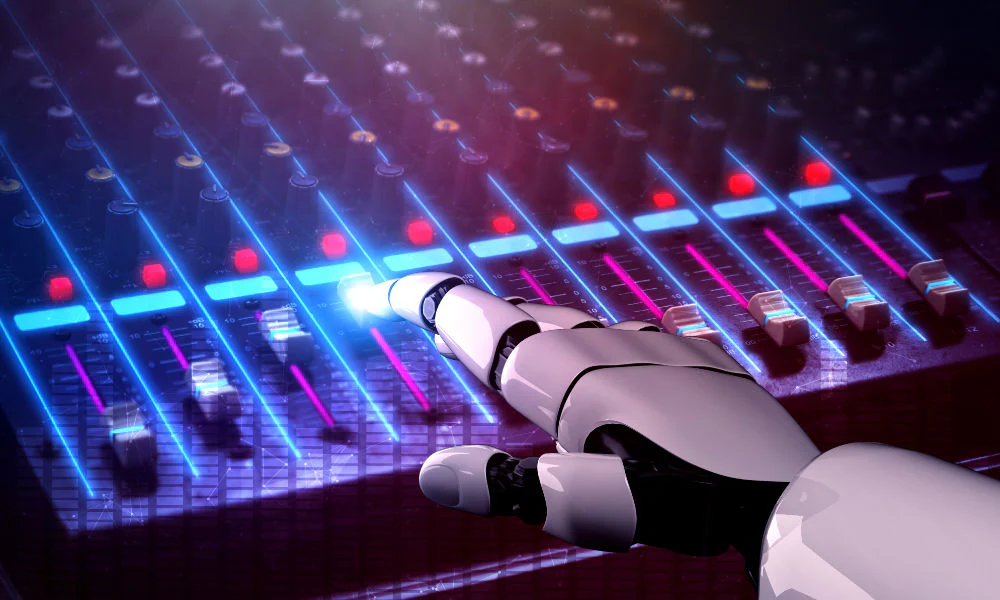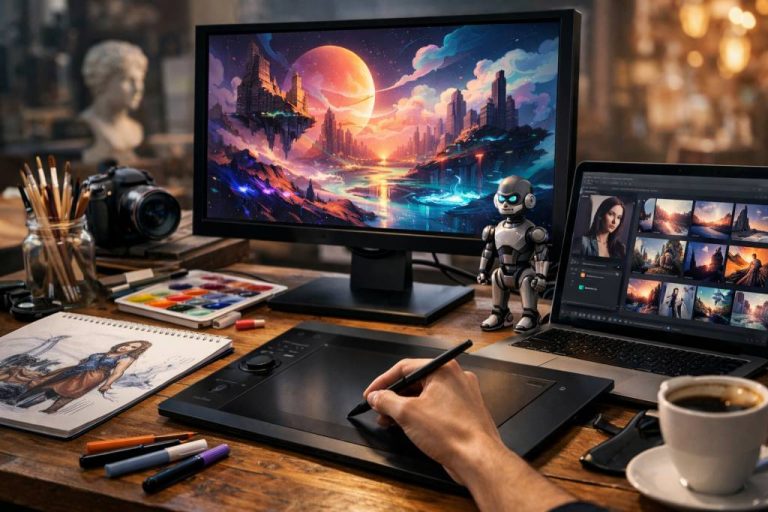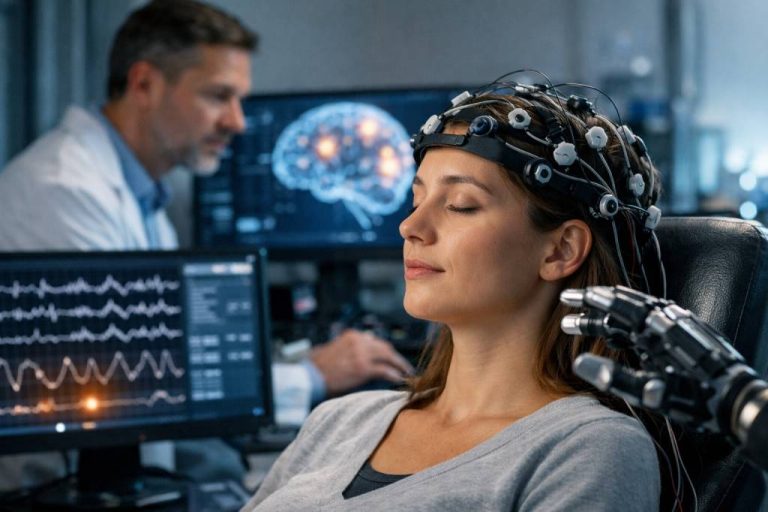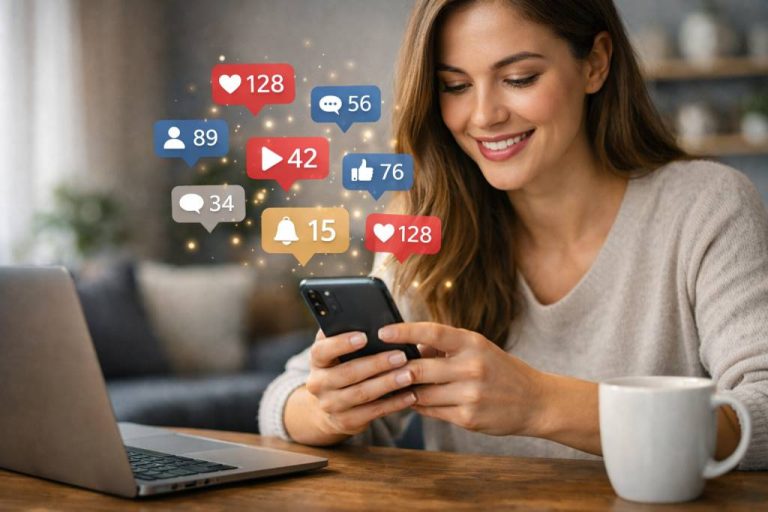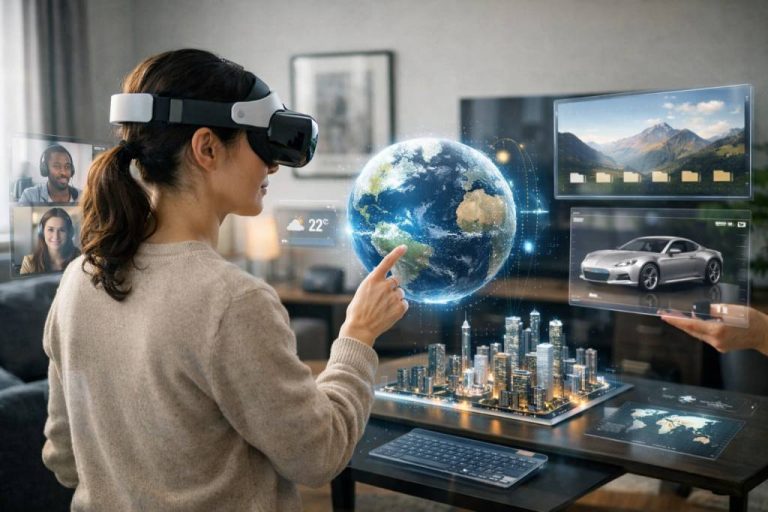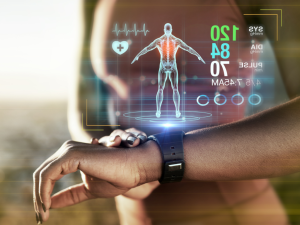The rise of AI in music: revolution or remix?
From classical symphonies written by algorithms to hyper-personalized playlists curated by machine learning, artificial intelligence is no longer a backstage assistant in the music industry — it’s center stage. But does AI create art, or just mimic patterns? And more importantly, how is it actively transforming the way music is composed, produced, and consumed today?
Let’s decode the digital symphony that’s reshaping the way we think about music creation.
AI as a creative collaborator
Forget the stereotype of AI as a cold, mechanical entity. In music, it’s becoming a genuine creative partner. Tools like AIVA (Artificial Intelligence Virtual Artist), Amper Music, and Google’s Magenta Studio are enabling musicians — both professionals and amateurs — to compose, arrange, and remix tracks at lightning speed, sometimes without even touching an instrument.
Take Amper, for example. This platform lets users generate royalty-free music by selecting parameters like mood, tempo, and instrumentation. The result? A fully produced track within minutes. No music theory required, no studio needed. Just input, tweak, export. It’s as if GarageBand and a film score composer had a genius AI baby.
But the goal isn’t to replace musicians. Most AI music tools are positioned as co-creators — extensions of the artist’s toolkit, not substitutes for human emotion or intent. Think of them as the 21st-century version of the sampler or drum machine: revolutionary at the time, now omnipresent.
Algorithms with an ear
Here’s a little-known fact: some of your favorite Spotify tracks might have been nudged into your ears not just by algorithms recommending them, but also by algorithms helping create them.
Companies like Endel and Boomy are tapping into generative AI to produce personalized soundscapes and full-on tracks. Boomy, in particular, lets anyone generate a song in seconds, tweak it, and publish it — some users have even made money off AI-made songs on platforms like Spotify. It’s music as instant content, and it’s gaining serious traction.
Endel went one step further — in 2019, it partnered with Warner Music Group to release 20 albums of AI-generated music focused on sleep and relaxation. Yes, you read that right: AI is dropping albums under contract. Let that sink in.
AI isn’t just listening. It’s producing. And people are listening back.
Mainstream artists are already onboard
Don’t think of AI in music as purely experimental or niche. Big names are already playing with it. Grimes — a pioneer of all things futuristic — stated in 2023 that she’s « open to having her voice cloned by AI » and even launched a platform, Elf.Tech, for others to use her voice model.
Similarly, Holly Herndon released an AI-based vocal twin, Holly+, which lets users sing and generate tracks in her style. And she’s not just allowing it — she’s encouraging collaborative experimentation, even building a DAO (Decentralized Autonomous Organization) to manage rights and revenue. That’s next-level music-making, powered by tech and community.
The takeaway here? AI is not hijacking creative control. In many cases, it’s expanding it — enabling artists to collaborate with versions of themselves they couldn’t otherwise reach.
AI as a democratizer of music creation
Remember the days when music production required expensive studio gear and years of practice? That gatekeeping is disappearing fast. With AI, making music is as simple as drag-and-drop or prompt-and-generate.
Whether you’re a TikTok content creator needing quick soundtracks, a bedroom producer uploading beats to SoundCloud, or a gamer building ambience for your indie game — AI levels the playing field. You don’t need to know how to read sheet music or program Ableton. Platforms like Soundraw.io or Ecrett Music guide users through simplified workflows that require no musical background.
And with the explosion of text-to-music models on the horizon (think MusicLM from Google or Riffusion, which converts spectrograms into music), we’re entering a moment where simply describing the vibe in natural language might be enough to generate a full audio experience.
But there’s a legal remix coming
Here’s the hitch. With great generation comes great responsibility. The legal and ethical questions surrounding AI-generated music are far from solved.
Who owns a song made by an algorithm after you clicked “Generate”? What if someone uses an AI to clone Adele’s voice and release an unofficial single? Are we heading for a storm of lawsuits, or a redefinition of musical authorship?
Regulations are catching up, slowly. Copyright frameworks in Europe and the US are still grappling with whether AI compositions qualify as original works — and if so, to whom that originality belongs. In April 2023, Universal Music Group issued takedown requests for AI-generated tracks mimicking artist voices. Expect more headlines like these in the coming months.
Meanwhile, performers, platforms, and programmers are all trying to set their own ground rules — some using blockchain to track rights, others building AI directories with opt-in/out voice libraries. It’s the Wild West of ownership, and we’re all watching the showdown unfold.
Real-world use cases beyond the studio
AI-generated music isn’t just a studio novelty or a YouTube experiment. It’s already finding concrete applications across industries:
- Gaming: Platforms like Mubert provide AI soundtracks for games that adapt in real-time based on player action — elevating immersion to a whole new level.
- Marketing & Branding: Custom audio logos and theme songs are generated based on brand tone, colors, and mission. AI brings sonic identity to startups who couldn’t afford sound designers a decade ago.
- Healthcare: AI-generated relaxation music is used in therapy sessions, guided meditation apps, and even hospital recovery rooms to promote calm and aid focus.
- Education: Teachers are experimenting with AI co-composed songs to teach rhythm, languages or historical periods — making curricula more interactive and less textbook-dependent.
So… are composers out of a job?
Let’s make one thing clear: AI can automate structure, style, and repetition. But it won’t feel heartbreak. It doesn’t know what it’s like to have your heart broken to a Radiohead track or to cry during a cello solo. It doesn’t feel. And that’s what great composers bring to the table — depth, nuance, imperfection.
In reality, what we’re seeing isn’t the end of musicianship — it’s an evolution. Composers are learning to prompt machines better, mix AI-created layers with analog instruments, and even train custom models on their own past works to expand their sonic vocabulary. Music creation, in this hybrid model, becomes more inclusive, more playful, and paradoxically — more human.
What’s next on the playlist?
The next phase of AI in music might be even more intimate. Imagine an AI model trained on your personal playlists, biometrics, and mood sensors, crafting real-time soundscapes tailored to you, wherever you are. Running? You get high-tempo beats. Reading? Here’s soft ambient jazz. Stressed? Here come the Alpha waves and down-tempo strings.
We’re heading toward a future where music isn’t just heard — it responds, adapts, and supports. In this ecosystem, everyone becomes a musician, a conductor, and a curator of their own symphony. Which begs the question: if music is this personalized, is it still a shared cultural experience?
Maybe. Or maybe AI is just helping us find new harmonies between code and creativity. Either way, the beat goes on — and AI is drumming louder with every passing day.
Keep your ears open. The future of music is already playing.












